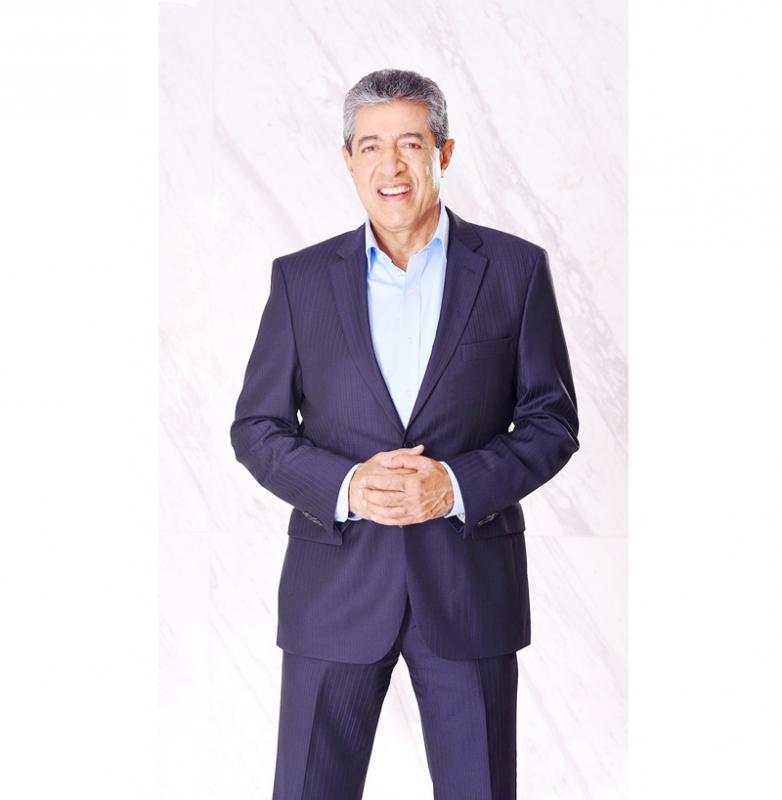Citibank Taiwan Ltd’s (台灣花旗) board of directors yesterday elected Aftab Ahmed, a former Citi country officer (CCO) for the Philippines, as the bank’s new chairman, pending regulatory approval.
Aftab is to take over the position from Paulus Mok (莫兆鴻), who last month announced that he would on Friday next week retire as chairman and CEO.
Aftab, a Citi veteran of more than 40 years, has previously worked as Citi Taiwan’s global consumer banking operations and technology head, and thus has a good understanding and knowledge of the local market.

“Taiwan is one of Citi’s most important markets in the region where we have a market leading institutional franchise and a strong commitment to responsible and sustainable growth. I look forward to Aftab building on this strong franchise and supporting our clients further,” Citibank North and East Asia head Tim Monger said.
Aftab said: “We are grateful for Paulus’ 28-year contribution to Citi. Under his leadership, Citi Taiwan has consistently delivered strong results and has been smoothly moving forward with the GCB Divestiture. I look forward to building on this legacy and supporting our clients as we are committed to further growth in Taiwan.”
Paulus said: “Citi Taiwan has the best talent in the market. With this top-notch team, and Aftab’s more than 40 years of extensive experience gained from regional management, technology and business, Citi Taiwan will continue to shine.”
Under Paulus’ leadership, Citi Taiwan successfully helped clients achieve sustainable growth and laid a solid foundation with an environmental, social and corporate governance strategy as a core competitive advantage.
Citi was named the Best International Bank in Taiwan by FinanceAsia for 26 consecutive years and the Best International Bank by The Asset magazine for 19 consecutive years.
Citi was also consistently named Best Bank by Euromoney and Best International Bank by Asiamoney.
Aftab has held a number of senior roles at Citi including country officer and CEO for Egypt, country officer and CEO for Hungary, consumer country business manager for Pakistan, corporate bank head for New Zealand, branch expansion director in New York, consumer finance head and regional sales development director in Singapore, and consumer banking operations and technology head for Germany.
In his business and leadership roles in multiple locations, Aftab has been extensively involved in and has successfully contributed to country and regional initiatives to grow franchises, expand the branch footprint, increase the customer base and deepen relationships, and protect and grow portfolios.
Aftab believes that leadership is not just about leading people to achieve goals and deliver results, it is also about mentoring, and contributing to the growth and development of his team.
Since the opening of the first representative office in 1964, Citi has been present in Taiwan for close to 60 years. Citi is the largest foreign bank in Taiwan, and counts more than 700 multinational corporations, more than 1,500 small and medium-sized enterprises and more than 100 top local companies among its clients.
Citi is to continue to focus on clients’ needs, support local market development and foster sustainable growth in the corporate sector.

Vincent Wei led fellow Singaporean farmers around an empty Malaysian plot, laying out plans for a greenhouse and rows of leafy vegetables. What he pitched was not just space for crops, but a lifeline for growers struggling to make ends meet in a city-state with high prices and little vacant land. The future agriculture hub is part of a joint special economic zone launched last year by the two neighbors, expected to cost US$123 million and produce 10,000 tonnes of fresh produce annually. It is attracting Singaporean farmers with promises of cheaper land, labor and energy just over the border.

US actor Matthew McConaughey has filed recordings of his image and voice with US patent authorities to protect them from unauthorized usage by artificial intelligence (AI) platforms, a representative said earlier this week. Several video clips and audio recordings were registered by the commercial arm of the Just Keep Livin’ Foundation, a non-profit created by the Oscar-winning actor and his wife, Camila, according to the US Patent and Trademark Office database. Many artists are increasingly concerned about the uncontrolled use of their image via generative AI since the rollout of ChatGPT and other AI-powered tools. Several US states have adopted

A proposed billionaires’ tax in California has ignited a political uproar in Silicon Valley, with tech titans threatening to leave the state while California Governor Gavin Newsom of the Democratic Party maneuvers to defeat a levy that he fears would lead to an exodus of wealth. A technology mecca, California has more billionaires than any other US state — a few hundred, by some estimates. About half its personal income tax revenue, a financial backbone in the nearly US$350 billion budget, comes from the top 1 percent of earners. A large healthcare union is attempting to place a proposal before

KEEPING UP: The acquisition of a cleanroom in Taiwan would enable Micron to increase production in a market where demand continues to outpace supply, a Micron official said Micron Technology Inc has signed a letter of intent to buy a fabrication site in Taiwan from Powerchip Semiconductor Manufacturing Corp (力積電) for US$1.8 billion to expand its production of memory chips. Micron would take control of the P5 site in Miaoli County’s Tongluo Township (銅鑼) and plans to ramp up DRAM production in phases after the transaction closes in the second quarter, the company said in a statement on Saturday. The acquisition includes an existing 12 inch fab cleanroom of 27,871m2 and would further position Micron to address growing global demand for memory solutions, the company said. Micron expects the transaction to